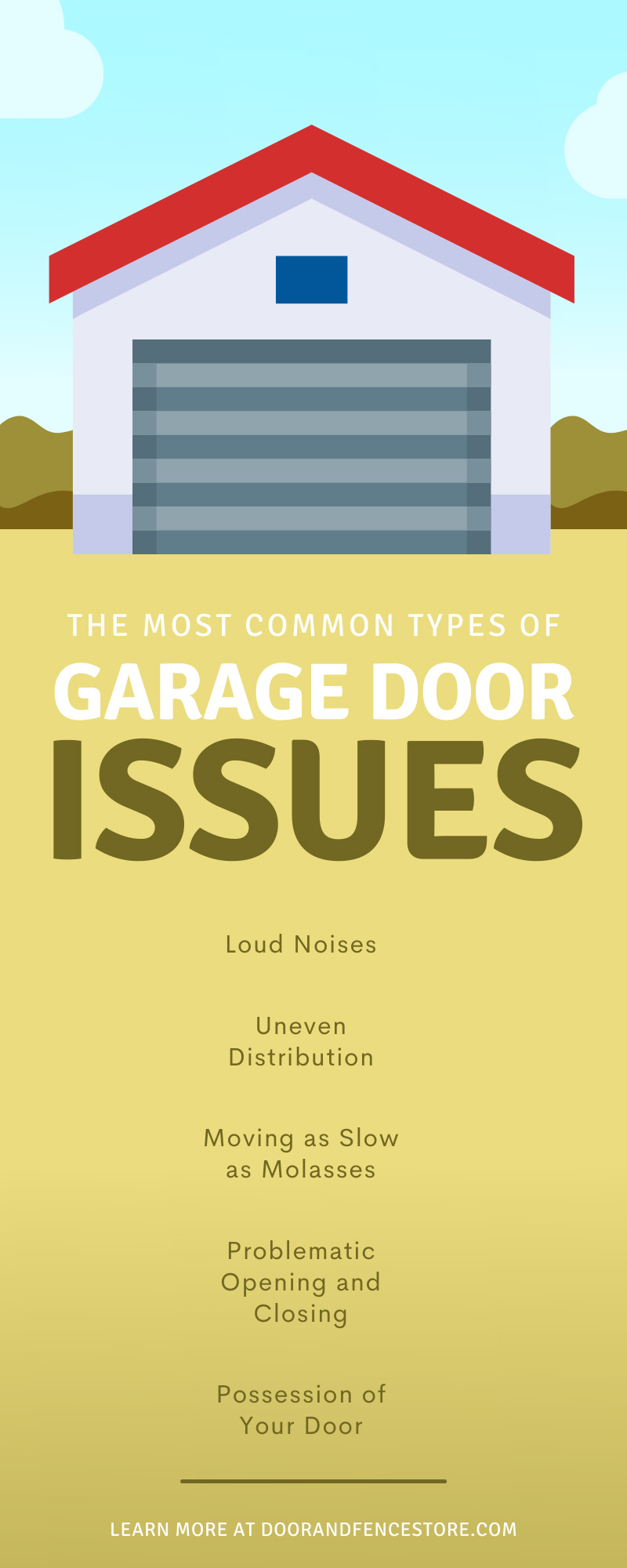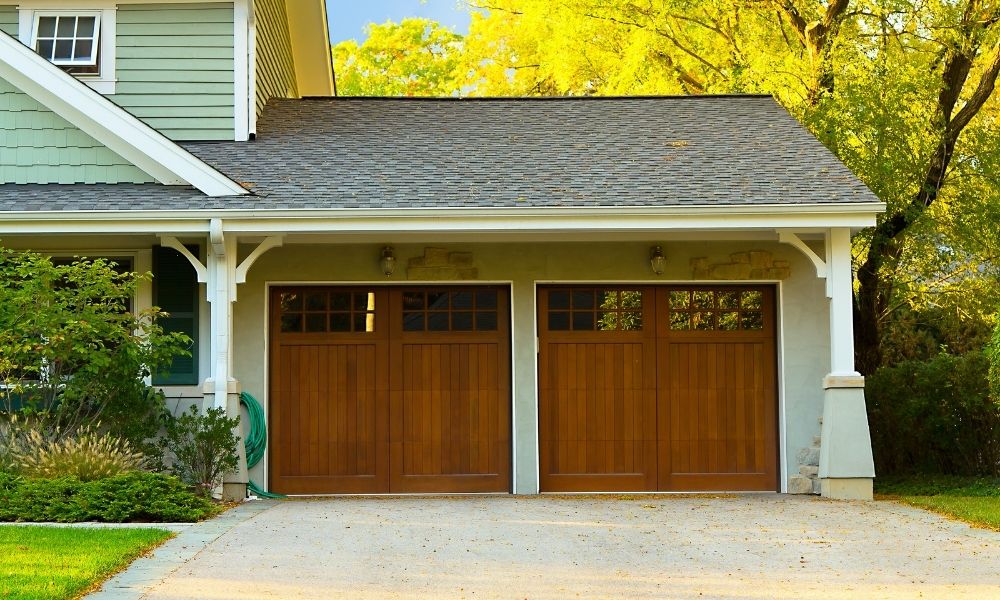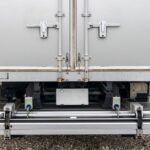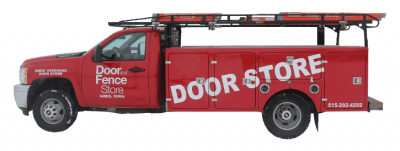There is an infinite array of issues that can come with machinery of all forms. This knowledge also extends to garage doors. Before you ever take on a process involving garage door maintenance, you will need to know the most common types of garage door issues that plague manual and automated garage doors. This knowledge will ensure you’re always ready in the event your garage door does have a breakdown or needs a tune-up.
Loud Noises
Garage doors aren’t usually known for being quiet, but if their noises ever start alerting the neighbor’s dog down the street, it might be time to investigate the sound and the source of that sound. There are typically a few things that could be leading to these issues.
The first and most common problem relates to lubrication. If you aren’t lubricating your wheels and tracks, you might be surprised to find out that they can gunk up and create noise from all the buildup.
It might also be a great idea to clean your setup before lubrication to ensure that you have a clear path and wheelbase. This will eradicate any noises that might be present.
Uneven Distribution
With all the wear and tear that comes with age and the use of your garage door and all its components, things tend to get rattled around quite a bit. You will need to do a regular inspection of your unit, the railings, the wheels, and their bearings to ensure that everything is still operating properly.
But what you should really investigate thoroughly is how well everything is fitting together. If your chain or railings are loose, it could alter how well your garage door is functioning and could cause quite a few malfunctions.
Depending on what is unevenly distributed or out of place, the issue will only worsen with time. So, if you don’t usually tighten or replace components when they are loose or worn out, you can bet that the same annoying problems will continue to develop over time.
Problematic Opening and Closing
Eventually, you might notice that your garage door is acting up out of the blue, and you have no clue as to what could be the issue. Maybe it will only open part of the way and then pause. Or maybe it won’t completely close.
Most automated doors, including sectional garage doors for residential buildings, have a built-in safety feature that causes them to shut off when they sense that something is in their path. You might check the internal features of your unit to make sure that it isn’t fried.
If you believe this system to be worn, then you may need to call a technician to come out and replace the unit altogether. However, they may be able to fix the internal parts that need correction.
Moving as Slow as Molasses
You might find on any given day that while your garage door is moving, it’s not doing so at its typical pace. You have checked everything and covered all the stops, and the door still moves at a snail’s pace.
You went ahead and tightened everything, cleaned and lubricated the parts as a preventative maintenance measure, but alas, no progress. There is one piece to the puzzle that is very likely to have not been maintained, and that is the spring set.
Over time, springs wear out and even fail under pressure. When your garage door is moving from its up to down position, those springs are take on a lot of stress.
So, over the course of several years, all the tension that was once in those springs has slowly released until there is none left to give. This is usually what it means when your door moves slowly.
This issue is especially likely to be the cause if you can’t find anything else that is wrong with your unit. So, either have an extra set of springs on hand that you replace yourself or spend the time and money hiring a maintenance technician to look at your garage unit and do the job for you.
Possession of Your Door
If you notice that your door has completely gone haywire and opens and shuts at random, this could be an issue. If not fixed in a timely manner, it could manifest into a worsening condition.
This problem usually relates back to a few causes. First, the internal wiring of the unit could be shorted, or there could be an issue with your electrical wiring that’s causing it to misfire. If this is the case, you might want to look closer at your electrical wiring to determine whether to replace the components with newer wires. If this does not solve the problem, the cause could be related to your door’s remote control.
Sometimes, the buttons have the tendency to get stuck, in which case you could either take apart the remote control and put it together again or just purchase a replacement remote. On some units, there is also an option that allows the user to speed up and slow down the pace at which the door opens.
If you attempt to adjust your door in this way and still have no luck, the problem most likely has to do with the previous two issues. If all else fails, you will need to call a technician about the problem to seek professional help with the matter.
You should never let a problem sit and fester because this only gives it time to worsen. So, if you ever notice or assume something to be wrong, the least you can do is inspect it to make sure. Choosing to own any type of machinery means that you will have to keep up with its maintenance. This could not be truer than in the case of automated garage doors.
Prepare in advance for these issues and remain vigilant to the reality that it’s just a matter of time before your garage door or appliance breaks down. The most common types of garage door issues are typically the smallest, but those can prove to be a pain if not cared for promptly.









